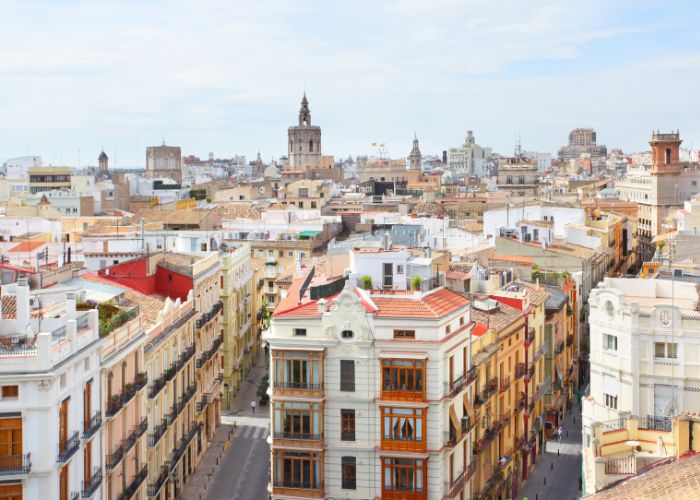PROVINCIA DE VALENCIA – Investment funds and real estate companies are offering dozens of illegally occupied properties for sale in the Valencia region. These are offered for half the price because there are still squatters in them.
The buyer can therefore only occupy the property after the eviction has taken place. However, due to the current chaos in the Spanish legal system due to strikes, that could take up to three years. Those looking for a house may see fewer “for sale” signs on balconies or building facades. Instead, it’s increasingly easy to check out platforms like milanuncios.com or idealista.com. The number of homes on offer there is increasing.
Some prices are attracting a lot of attention. For example, an apartment in La Vall d’Uixó for €29,000. Or an apartment of 123 square metres in Torrente for €50,000. That seems “too good to be true”. However, a closer inspection of the ad explains more. In large letters, the seller states that the property is “occupied by an unlawful person” and “due to its occupancy status, it is not possible to view this property”.
Offers for cheap housing with squatters
There are dozens of offers for cheap properties with squatters in the Valencia region. Most of them are owned by banks or investment funds. But how can you buy a squatted house? The newspaper Las Provincias contacted several real estate companies that offer illegally occupied housing. The procedure is always the same: the seller does not undertake the eviction under any circumstances. This is the buyer’s responsibility.
No guarantee about the condition of the house
If getting illegal residents out of your home is already a financial and mental strain, is it worth it to get involved in a long and exhausting legal process? In addition to the real estate companies warning that the property in question cannot be viewed because people live in it, it cannot be valued either. The sellers are therefore, not responsible for any damage to the property and they cannot guarantee its condition.
Payment in cash is required
Another condition for buying an illegally occupied property is that payment must be made in cash. It cannot be financed, nor can it be mortgaged. The prices of these types of properties offered in the region range from €29,000 to €114,000. There are also advertisements for properties in the centre of Valencia. A house in Calle San Vicente Mártir, with an area of 100 square metres and four bedrooms, sold for only €57,000.
Anti-money laundering tools
But not everyone has that much money in the bank. One of the real estate companies that are used to dealing with these types of properties warns that they check the money has a legal origin. Another company consulted specifies that while they are not responsible for the eviction of people illegally living on the premises, they do have protocols in place to ensure that the process is not conducted aggressively or violently.
Many home squats in the Valencia region
The region of Valencia ranks second, after Catalonia, with the highest number of home burglaries. In the first quarter of the year, there were 420 cases, according to official data.
In total, criminal offences related to squatting in the first quarter of 2023 fell by 11% compared to the same period last year. However, Catalonia remains in the lead with 1,673 cases, 42% of the total.
Related post: Spain continues to protect vulnerable families against eviction
As of March 31, 3,898 offences related to illegal occupation of premises were counted, compared to 4,385 cases in the first quarter of 2022.
Who are the buyers of squatted properties?
Buyers of these types of properties are usually investors who want to rent or sell the property to make a profit. But without a doubt, evicting squatters is no easy task. Lawyer Enric Cano explains in Las Provincias that these types of homes usually sell for half the market price “because the buyer can’t move in until the eviction takes place. This process can take up to three years.”
According to Cano, the damage to the owner as a result of the eviction process can amount to between €30,000 and €40,000. He spoke to victims who were forced to sell their houses after they were illegally occupied. About that, he said: “It is a very traumatic situation. In a case I dealt with, the owner of a house worth €70,000 eventually had to sell for it €35,000”.
Tease
According to the lawyer, these cases are increasing in the region of Valencia. It seems to be a real plague. In addition, the eviction process becomes more complicated when the squatters are families with young children. “Families with minors and limited economic circumstances usually ask for a vulnerability report. This lengthens the process considerably and makes the eviction quite difficult,” says lawyer Enric Cano.
New housing law makes matters even more complicated
The controversial Housing Act 2023 further complicates the situation. In the law, while it is still possible to evict squatters who forcibly enter a home, changes have been made that could further delay the process. Under the pretext of protecting vulnerable families, the owner must prove that the property is being used as living space by the illegal occupant.
A situation more complicated for large landlords
If this condition applies to large landlords, i.e. owners who own more than five properties, the process becomes more complicated. They must then demonstrate whether the accused party is in a vulnerable situation. In addition, they must also have initiated an arbitration or mediation process to find alternative housing for the illegal resident before requesting eviction. A very difficult requirement in today’s housing market to fulfil.
Related post: Squatters continue to be a major problem in Spain


